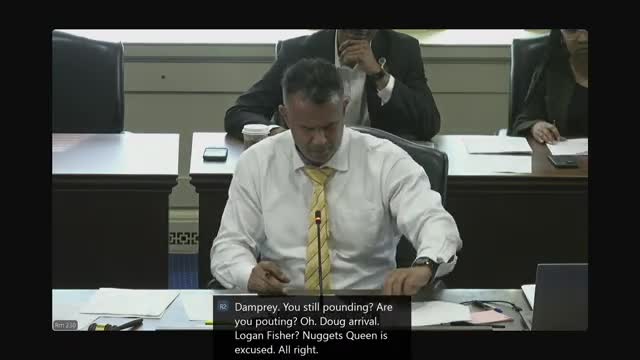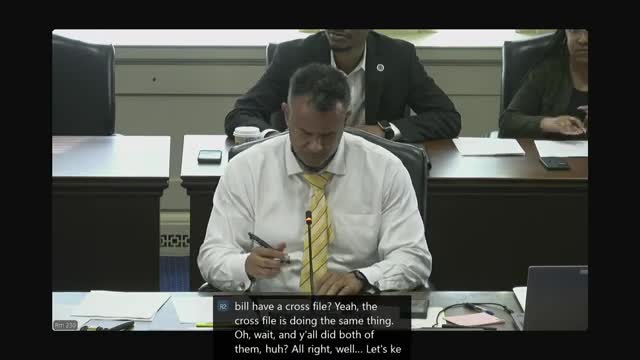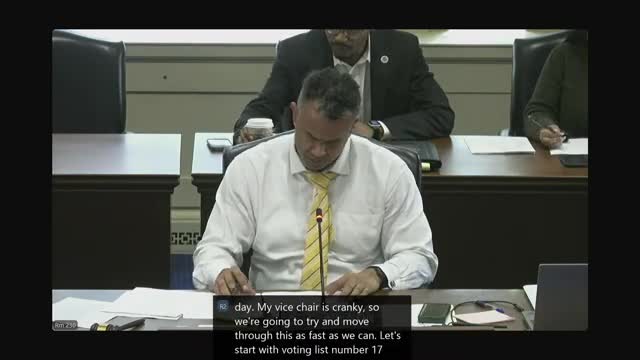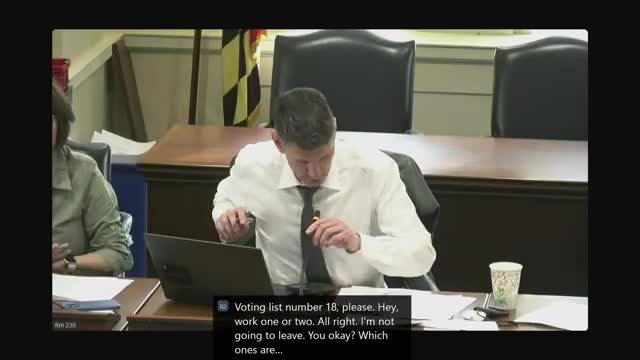Article not found
This article is no longer available. But don't worry—we've gathered other articles that discuss the same topic.

Committee debates medical-cannabis protections for fire and rescue employees; members split on impairment and CDL issues

Committee advances bill changing administration of community reinvestment and repair fund with amendments

Committee delays bill that would require licenses for electronic smoking-device sales and expand seizure authority

